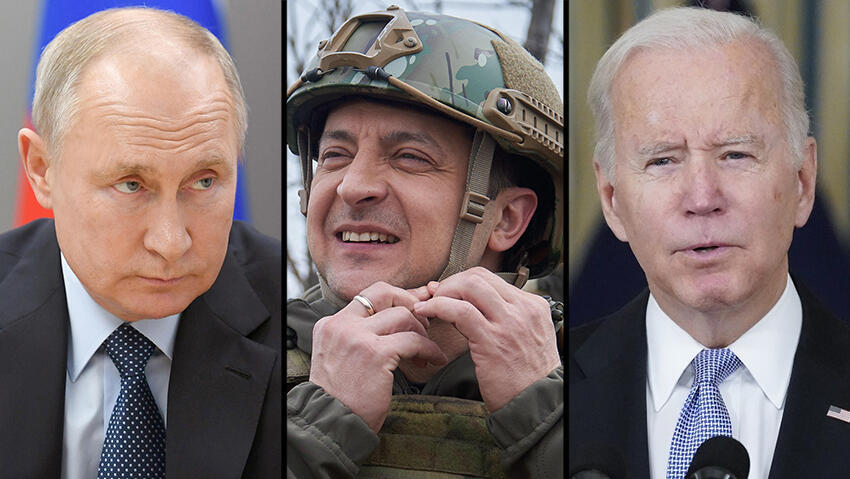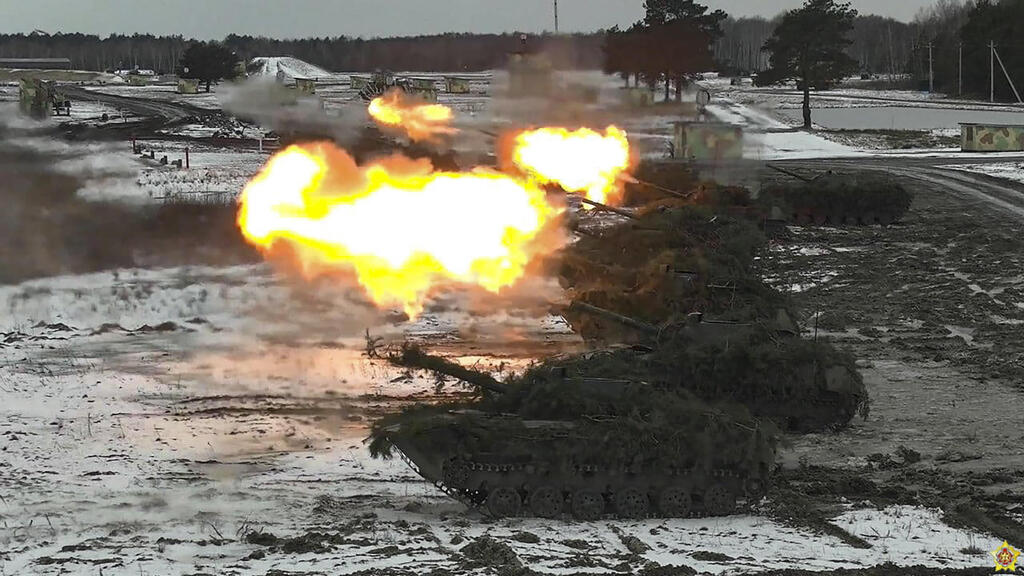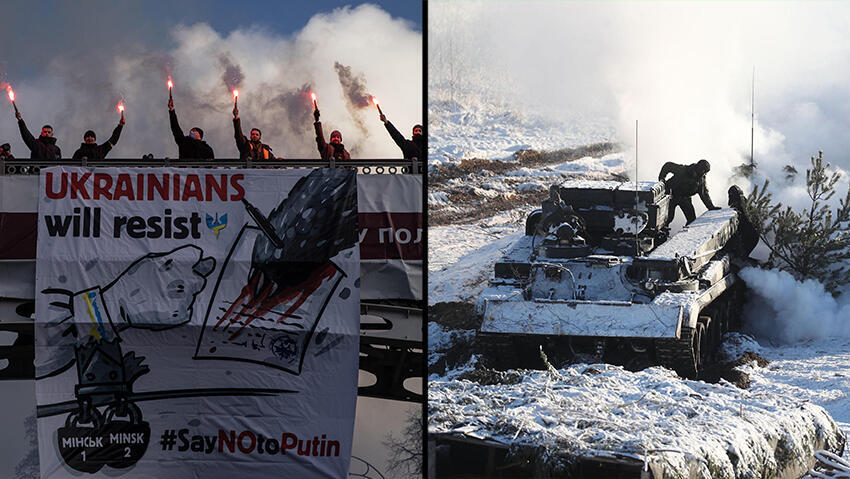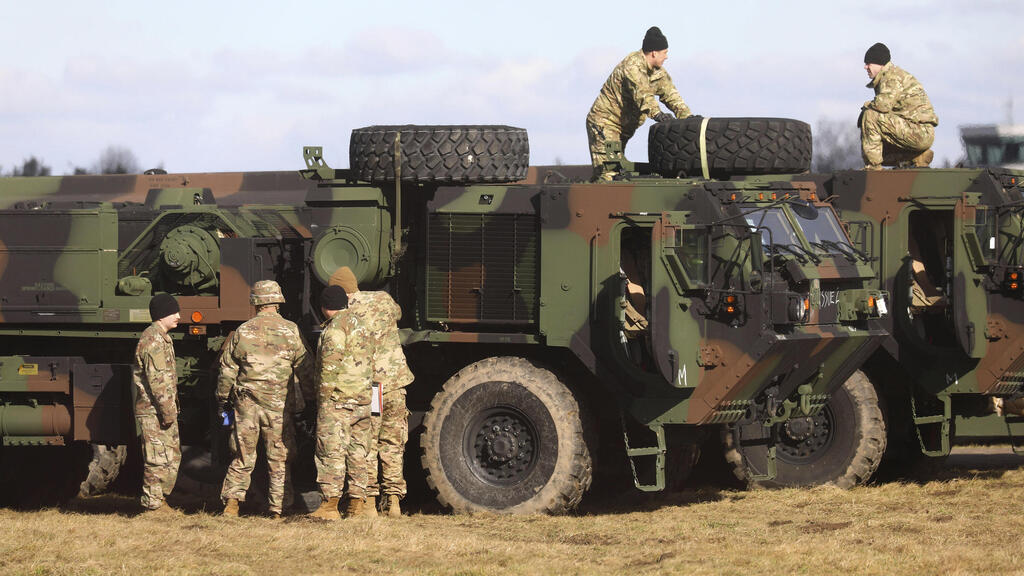Getting your Trinity Audio player ready...
"A war in Europe" - it's a phrase that destabilizes everything we know and was last uttered 75 years ago.
Yes, there were other wars, such as the one in Yugoslavia, which was the result of the dissolution of the Eastern Bloc, generally referred to the USSR. And Russia also conducted a series of military actions over the years, like the ones in Chechnya and Georgia.
But for the first time since World War II, two armed and highly organized armies might clash, as one has over a million soldiers and the other has more than three, both have tens of thousands of various military vehicles, not to mention a nuclear capability on the Russian side.
This is not a civil war that has gone out of control like in Bosnia, nor a border dispute or a rogue takeover, like Russia's annexation of Crimea in 2014. If this invasion does happen, as the CIA conveyed to U.S. President Joe Biden it would. This would be a real attempt to reshape the European borders by using lethal and destructive force of one of the most powerful armies on the globe.
In fact, this will be an attempt to reverse the achievements of the West after the collapse of the Soviet Union, or as Russian President Vladimir Putin called it "the greatest geopolitical catastrophe of the 20th century".
But before we begin panicking over the potential war, we first need to understand what is currently happening because it is quite unusual.
The Americans are conducting extensive psychological warfare through international media against the Russians. They are constantly revealing their intelligence about Kremlin allegedly telling its military forces to prepare for the invasion and planning false attacks on Ukraine as an excuse to start a war. The U.S. and NATO constantly update the world about every Russian move to the east.
These actions have a few purposes: To make it clear to Moscow that its plans are completely exposed to the American intelligence, to place the responsibility for the possible invasion on Putin's shoulders, to make sure that the U.S. allies understand the expected escalation, to cause internal pressure in Russia and damage its economy before the war even begins - all in an attempt to reduce the scale of the invasion.
The Kremlin is also reacting in an unusual way by throwing dust in the world's eyes. On Saturday, Russia's Foreign Minister Sergey Lavrov said that when everything is over and the Russian soldiers return to their bases having not fought a war, the West will be able to declare "victory" and glorify how they made Russia fold. It was his clever way of saying there will be no war.
There are doubts about the war's probability on the other side as well: The French, for example, have so far not evacuated their embassy staff (and neither has Israel), due to skepticism over was breaking out as soon as this week - like the U.S. insists it would.
5 View gallery
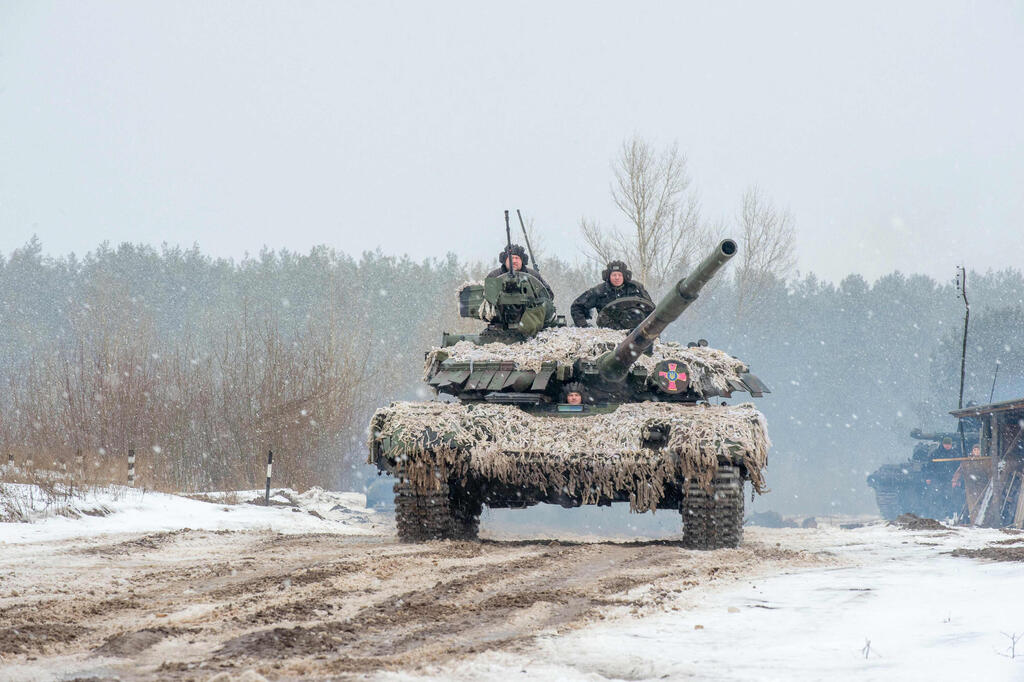

Ukrainian forces performing a drill in order to prepare for the possible Russian invasion
(Photo: AFP)
Despite these discrepancies, NATO has become - now more than ever - a relevant player in the current crisis. The allies inside the intergovernmental military organization are coordinated, threatening Russia with a vigorous response, and strengthening their presence in the Baltic states, Poland, and Eastern Europe in general.
On July 12, the Russian leader laid his historic claim to the occupation of Ukraine in a long article published by the Kremlin, which still can be found on his website. Putin mentioned that Kyiv was the center of the ancient Russian kingdom and quoted Oleg of Novgorod (also known as Oleg the Prophet), who was a Rurikid prince who ruled all or part of the Rus' people during the late ninth and early 10th centuries, who said that the Ukrainian capital is "the mother of all Russian cities".
The Russians and Ukrainians are the same people, emphasized Putin, "and this is our shared tragedy and misfortune," he wrote. "When the wall between Russia and Ukraine was established, it was a product of mistakes that were made, but also a joint effort by the same forces that have always tried to undermine our unity," referring to the West.
These arguments are probably more acceptable compared to the inferior geopolitical analysis on the issue, which claims the reason for this invasion is the rich Ukrainian lands and acquirement of the needed water supply to the Crimean Peninsula. And even though Putin knows that the invasion will damage the Russian economy rather than help it, he is likely willing to consider that risk at the very least.
Putin, however, is ignoring what the Ukrainians themselves want. Like other countries in Eastern Europe, Ukraine's attraction to the West is not due to anti-Russian falsehoods, but due to the aspiration of the success and prosperity that other Eastern European countries that enjoyed thanks to their the alliance with the West. Over the decades, the Ukrainians have also felt rejected by Moscow: The great famine, the Ukrainian national tragedy in which 30 million people died in the 1920s, was a direct product of orders coming out of Kremlin.
Historian Anne Applebaum writes that "one step at a time, through bureaucratic language and dull legal definitions, the Soviet leadership, with the help of their frightened Ukrainian counterparts, have caused the hunger crisis that targeted the Ukrainians."
Now, the sum of the shared Russian-Ukrainian history converges into one solid moment of fear. The dimensions of the invasion, if it happens, are unknown. We don't know whether only eastern Ukraine will be conquered and annexed, or if the Russian army will continue all the way to the borders of Romania and Poland in an effort to reshape the European power image.
The truth is that many observers didn't realize that Putin has already made the final decision, despite the American attempt to drag Russia into an international conflict before the first tank breached the Ukrainian border.
We all prefer not to believe there is something that can threaten the entire world order. One that took a lot of effort to build after World War II and again after the collapse of the Berlin Wall.
For a long time, nations, ideological groups, state leaders, and sectors of the population have been rebelling against it and caused numerous fractures in it. But it's the first actual test, and it won't be the last.


